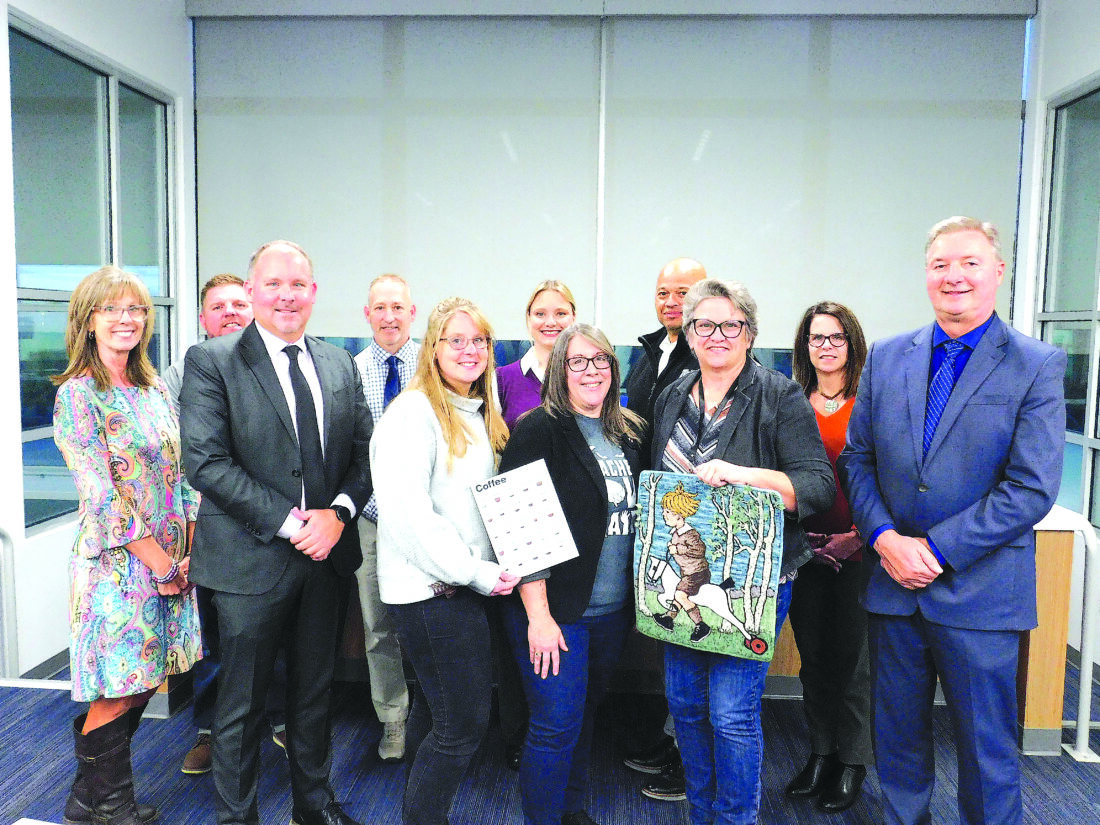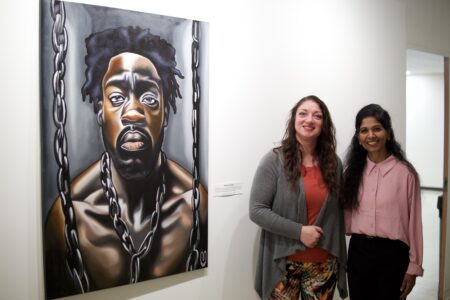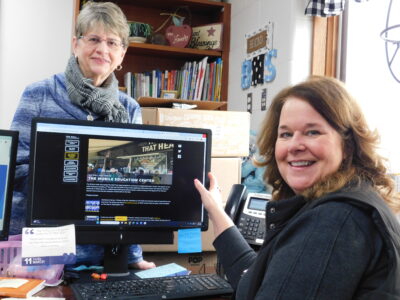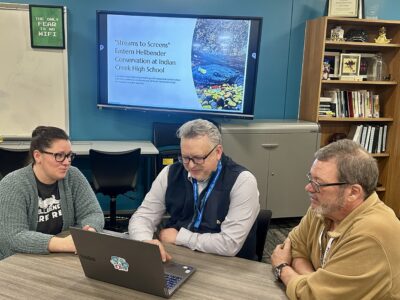JCESC grant funds skill-building projects for Harrison Hills

Photo Provided Harrison Hills City School District educators Ann Wright and Jaclyn Cottrell, LeeAnn VanCamp and Alisha Steele, not present, are recipients of the Jefferson County Educational Service Center’s Best Practices Grants. The board of education accepted the grants during a recent board meeting. The projects will instill skills in their students. JCESC Curriculum Director Ron Sismondo presented the grants. Also pictured are Harrison Hills Superintendent Duran Morgan, Pre-K-12th grade Principal Ken Parker, and board members D.J. Watson, Edward Banks, Deborah Kenny, Tracy Mattern and Kristen Wells.
CADIZ — Three Harrison Hills City School District projects were among those receiving the latest round of Best Practices Grants from the Jefferson County Educational Service Center.
On Oct. 30, JCESC Director of Curriculum Ron Sismondo spoke at the Harrison Hills Board of Education and presented three grants of $700 each. Sismondo noted there were 61 total applications from JCESC’s entire consortium, eight of which were from Harrison Hills.
“They were all good applications and good projects, and we selected three of them.”
Jacyln Cottrell and Ann Wright of the junior/senior high school are helping their students start up the PAWSitivity Coffee Cafe as a Service Learning project, with more than 22 students to be initially impacted. As the name suggests, students will create and operate a cafe. This will give them the opportunity to gain life skills and work skills in multiple areas including organizing a menu, ordering inventory and marketing.
Wright said from the conception stage, the project quickly took off. The cafe is up and running and may provide work-based career readiness options for students.
“We have a group of four boys who actually took this project on, created it, came up with the plans,” she said. “It also helps getting their seals for readiness for graduation.”
Cottrell said students quickly took the lead, showing their creativity by researching different recipes. The goal is for the café to be student-run. She said they look forward to passing the café down to the underclassmen and training them. Funds will go for the coffee machines, and Cottrell said they have also been receiving donations for supplies to help keep the café sustainable.
She added her students were also inspired to make something that would “give back” to the teachers, who go above and beyond.
Cottrell was a recipient of the Best Practices Grant two years ago for agricultural projects.
LeAnn VanCamp at Harrison Central Elementary is combining practical skills and history by launching the art program For the Love of Fiber. She is introducing fiber art within the elementary curriculum. More than 300 students are potentially impacted by the project, which includes rug hooking and felting.
VanCamp, who is part of a rug hooking guild, said the funds will go to making six rug hooking frames and 12 hooks. Classes will include how to plan out a design and colors, as well as using rug hooking. VanCamp said students will start with small items like coasters, then move to larger projects.
There is also a historical perspective, since rug hooking dates back to the 1900s during the days of dirt floors, when rugs were made using types of recycled fabrics. VanCamp added students will have the opportunity to incorporate their own designs and messages. Community members may also instruct students how to hand-quilt.
VanCamp said fewer people today know useful, basic skills such as how to thread a needle.
“They don’t have home economics anymore, and I think it’s a lost skill,” she said. “I’m trying to give them some life skills.”
She said the project will also allow students the opportunity to learn how to critique each other’s work positively.
VanCamp is a prior grant recipient. Her last project was funded in the 2019-2020 school year and involved having students make quilts for the area American Legions.
Alisha Steele of Harrison Central Elementary is starting Growing Gardens and Minds, partnering with the Gardyn Studio to use hydroponics to transform classrooms into “living laboratories.” This will benefit both Science and English and Language Arts, affecting 120 students. The young learners will investigate ecosystems and grow fresh produce indoors. They will use Kelby AI to manage data from sensors and cameras to manage plant care.
The project will connect to standards including nutrition, health, and sustainable practices. They will investigate ecosystems, collect data, write reflections, and apply problem-solving skills.
Steele looks forward to seeing her students develop confidence by presenting their findings. The students will explore healthy habits through tasting their harvest, and practice teamwork and responsibility while maintaining the system.
She noted the project connects core standards to real-world experiences to make learning meaningful and engaging. She hopes to spark their curiosity and instill motivation to extend what they learn beyond the classroom.
Steele could not be at the board meeting, but Sismondo said JCESC has funded similar, successful projects in other districts. He looks forward to seeing what Steele and her students can do.
“The kids really love it. They work hard at it, and it’s a good project.”
Sismondo added that it is a pleasure to work with Harrison Hills. The district has an excellent staff and facilities that they have opened to JCESC trainings.





